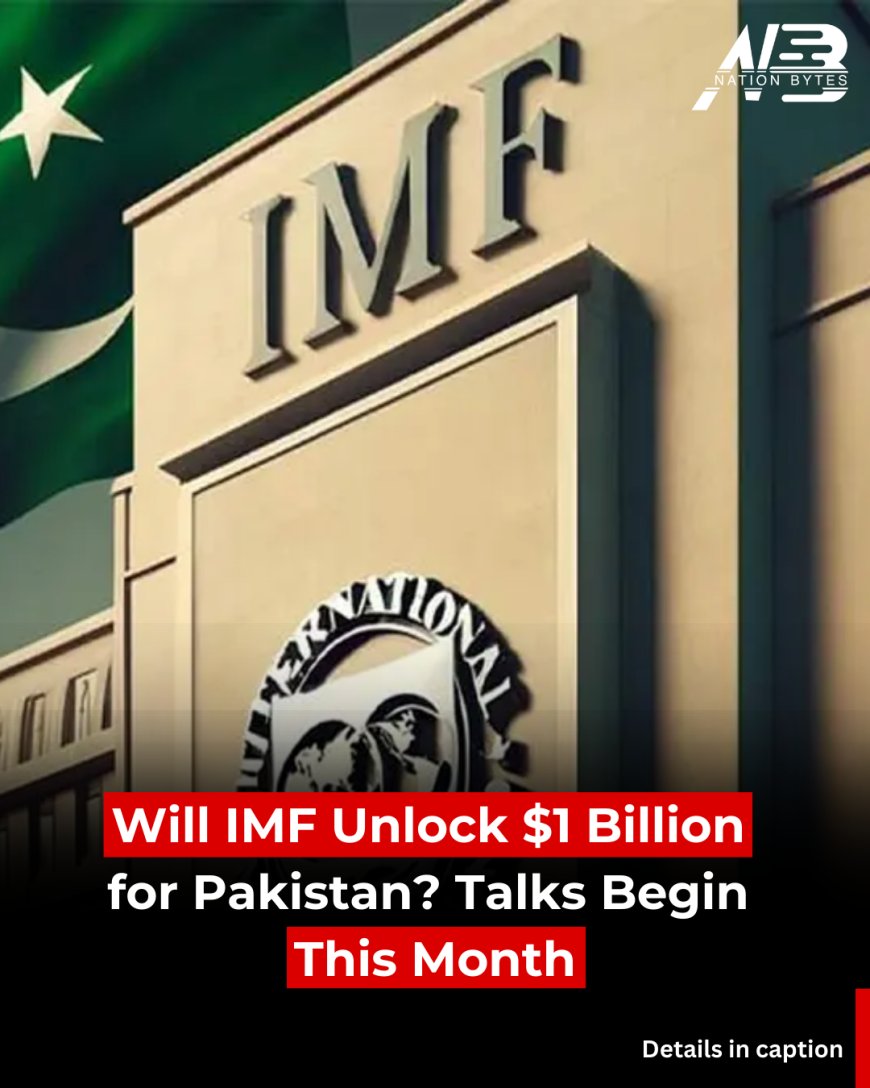Will IMF Unlock $1 Billion for Pakistan? Talks Begin This Month
Pakistan is set to begin talks with the IMF this month to unlock a $1 billion tranche under its bailout program. Success could stabilize reserves, but long-term reforms remain crucial.

Pakistan is gearing up for another crucial round of negotiations with the International Monetary Fund (IMF) this month, with hopes of unlocking the next $1 billion tranche under its ongoing bailout program. The talks are seen as critical for Pakistan’s economic stability, given the country’s persistent challenges with foreign exchange reserves, inflation, and external debt repayments.
Pakistan is currently under a multi-billion-dollar IMF program aimed at stabilizing its fragile economy. The upcoming talks will focus on the next review of the Extended Fund Facility (EFF), which is part of a broader strategy to help Pakistan overcome its financial challenges.
Unlocking the $1 billion tranche will depend on Pakistan’s progress in meeting the IMF’s structural reform targets and fiscal discipline measures, including:
-
Tax Reforms: The IMF has consistently pushed Pakistan to broaden the tax base and increase revenue collection.
-
Energy Sector Losses: Circular debt in the power sector remains a major concern.
-
Exchange Rate Policy: Ensuring a market-based exchange rate to prevent artificial stability.
-
Privatization & SOEs: IMF wants faster progress on restructuring or privatizing loss-making state-owned enterprises (SOEs).
-
Social Protection: Ensuring subsidies and cash transfer programs are well-targeted to protect low-income households.
Foreign Exchange Reserves are currently under pressure, making IMF inflows vital for stabilizing the economy.
Investor Confidence: Approval of the tranche will signal financial stability to global markets, offering relief to Pakistan’s currency and easing pressure on the Pakistani Rupee.
Debt Repayments
Pakistan faces billions in external debt repayments in FY25, making the IMF’s financial assistance crucial for maintaining the country’s ability to service its debt.
A senior finance ministry official stated:
“Pakistan is committed to fulfilling all prior actions required by the IMF. We expect a positive outcome from the review mission this month.”
Meanwhile, IMF representatives have stressed the importance of fiscal responsibility and long-term structural reforms rather than relying on short-term fixes. Delays in revenue reforms or energy pricing adjustments could stall the process. Political instability may also affect the pace of reform implementation.
Context on SBA Conditions
As part of the ongoing Stand-By Arrangement (SBA), the IMF has set clear conditions for Pakistan to meet specific fiscal and structural reforms. These conditions include:
-
Ensuring tax reforms that focus on increasing domestic revenue collection.
-
Addressing energy sector challenges, particularly circular debt.
-
Maintaining market-determined exchange rates and refraining from artificial interventions in the currency market.
-
Accelerating privatization and restructuring of state-owned enterprises.
-
Strengthening social protection programs to support vulnerable populations during economic transitions.
These conditions are designed to stabilize Pakistan’s economy in the short term, but experts argue that real, long-term stability will only come through deep reforms across multiple sectors, including taxation, energy, and governance.
The upcoming IMF talks will determine whether Pakistan can unlock the much-needed $1 billion tranche. Success would provide short-term relief for reserves and markets, but experts stress that long-term reforms in taxation, energy, and governance remain the only path to lasting economic stability.

 Ateeq Ur Rehman
Ateeq Ur Rehman